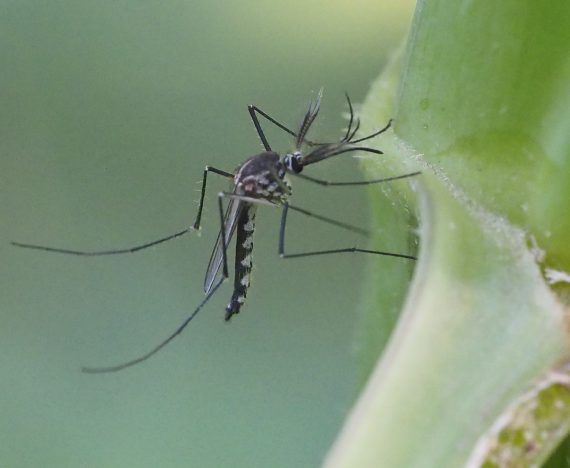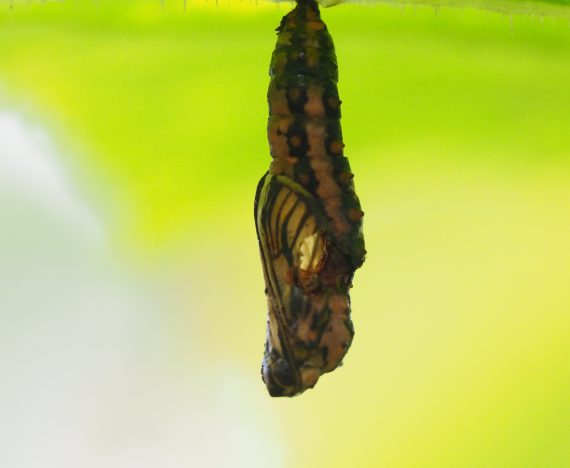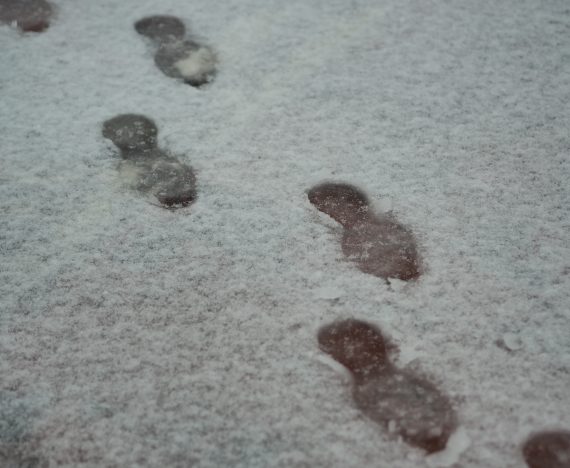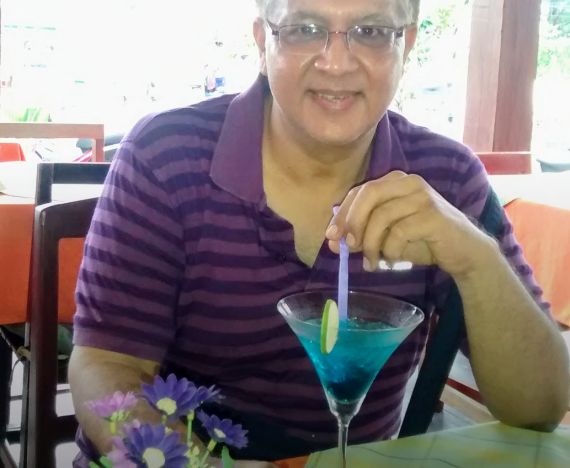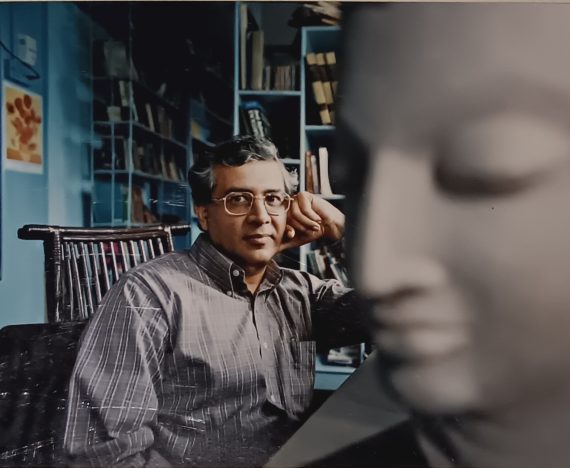THE ART OF DYING

Experiencing the death of the ‘I,’ leading to the opening of the ‘Mystic Eye,’ is the real Art of Dying!
Her mother’s body, draped in white, lay inert on a block of ice.
“Neither the white shroud nor the cotton wool stuffed into her nostrils can take away from her serene beauty,” thought Upasana as she sat among the mourners.
As the last of the mourners were leaving and the grieving members of the family were about to settle down for a light dinner, Mr Jhunjhunwala, the lawyer who lived two blocks away, came rushing in. Everyone was surprised to see him at such a late hour, and Krishan Pandey, the bereaved husband got up to acknowledge his condolences.
“Thank God, I’ve reached! I hope her body is still here,” Jhunjhunwala muttered, panting. Then, seeing through the partly open door the body covered in a white shroud, he exclaimed, “Very good! Very good!” and slumped down on the sofa. Upasana, was aghast at his inappropriate remarks. Even the sofa appeared to protest with a loud squeak, she thought.
“Here’s your wife’s will,” announced Mr Jhunjhunwala, as he brandished a big brown envelope and pointed it in the direction of Upasana’s father. “It was your wife’s desire you should receive this before her cremation. That’s why I came running all the way from New Delhi, where I had to appear in a court case!” he said, still struggling to catch his breath.
Despite her grief, Upasana smiled wanly as she looked at the stout man, dressed in a black lawyer’s coat and white shirt, his dark face covered with beads of sweat on that cold December night. She looked him over with her large, almond-shaped eyes, damp with tears, and wondered whether he had in fact run the two-hundred-and-fifty kilometres from Delhi to Parwanoo.
Jhunjhunwala, holding a cup of coffee in one podgy hand and the will in the other, waited for the assembled relatives to settle down. Then, clearing his throat, he pompously drew the will from the envelope, like a monarch drawing a sword from its sheath. His loud voice echoed in the room: “I, Mrs Maya Pandey, aged 47 years, wife of Mr Krishan Pandey, make this, my last will and testament, on this First day of April, 1996.
Jhunjhunwala looked up and said in a stage whisper to all who were leaning forward to hear him, “She made the will this year itself…perhaps she had a premonition of her death. Normally people keep delaying making a will, but in her case, she was lucky” then realising his words were a bit out of tune with the sombre mood in the room, he continued his recitation:
“My husband, Mr Krishan Pandey, has suffered two heart attacks till date and my only child, Upasana, who turned 22 on the Seventh of March this year, is still studying and is unmarried. Realising that she would be left alone and helpless, in case of the early demise of my husband, I hereby devise and bequeath all my estate in the manner hereunder.”
A long list of possessions was mentioned in the will. Most of them were willed to Upasana. The house in which they all were gathered, worth around sixty lacs, had been purchased by Mr Pandey from his own funds but was registered in his wife’s name. She had bequeathed the house, her fabulous jewellery, her Toyota car and the proceeds from all her life insurance policies to Upasana.
Jhunjhunwala continued reading, “People have not learned the art of dying in style and are needlessly afraid of death. I feel that something needs to be done in this regard. I, therefore, bequeath the proceeds from my two fixed deposits of Rs. 70,000 and Rs. 40,000 to set up an Art of Dying Trust.”
Krishan, her husband seemed to suddenly jerk to life, “The art of what trust?” he asked incredulously.
“Dying! The art of dying,” Mr Jhunjhunwala said patiently.
Upasana sat upright, the words rang a bell. She vividly remembered that after his enlightenment, her friend, philosopher and guide, Vivek had said, “Experiencing the death of the ‘I,’ leading to the opening of the ‘Mystic Eye,’ is the real Art of Dying!”
“The art of dying in style,” she wondered, “that her mother envisioned, in which one could celebrate one’s departure without protest, without regrets, without cringing for rebirth, could be possible only when one had gone through the art of dying that Vivek conceptualised.” She continued pondering that, “Liberation through ‘death before death’ is essential before one becomes capable of celebrating one’s death!” But Upasana found she couldn’t dwell on thoughts of Vivek, though she had fleetingly wondered why he had not come to convey his condolences. Mr. Jhunjhunwala was still reading the will and she did not wish to miss any word.
“For the purpose of the said Trust, I bequeath the said amount unto Mr Krishan Pandey, my husband, and Mr Anand, resident of ‘Valley View’ near Railway Colony, Shimla.”
“Anand is a family friend and a philosopher. He’s probably being included as he has some literary standing and would be of help in running this strange trust,” Krishan whispered to his daughter, “But what’s this art of dying business? Birth and death are not in our hands. Now, how could she know she would die like this? What was so artistic about her death? The art of dying. Bah!” His choked voice rose in volume while uttering each word.
Mr Jhunjhunwala unmoved by the interruption, raised his voice a notch and read on, “They would be joint trustees for the purpose of establishing and maintaining an office for dissemination of knowledge about the Art of Dying. The Trust should be set up within six months of my death, failing which the entire amount will go to any party that wishes to set up the Trust. Detailed plans of the Trust are with my lawyer, Mr Jhunjhunwala.”
Jhunjhunwala paused a while, feeling self-conscious. He looked reverently towards the room where the body lay. “Before I proceed, I’d like to know when her death occurred,” he asked.
“Maya left home yesterday in her car,” Krishan said in a voice filled with emotion, “I tried to persuade her not to proceed, since the weather was bad, but she insisted on going. She said she had to go to Shimla for some purchases and wanted to meet Upasana on the way. She planned to return by nightfall. But late last evening I received a call from her, saying she’d changed her plans and would be staying the night in Solan with Mrs Sood and be back early today. She rang me up even this morning and greeted me on my birthday before embarking on her final journey,” his voice choked as he buried his face in his hands. The silence was painful. “The whole town knows it’s my fiftieth birthday today,” he continued, “the cable TV operator is still flashing my birthday greetings on his channel. No one seems to have informed him of Maya’s death,” he wept.
“Upasana has been trying to contact him, but his phone seems to be out of order,” Deepu Uncle said to pacify his brother-in-law.
“My dear Maya even arranged a party in the evening! You have all come to celebrate my birthday but now we mourn her death.” Krishan continued through his sobs, “Why did she go to Shimla for shopping? Why couldn’t she go to Chandigarh instead? Then all this wouldn’t have happened. If only she would listen….” The incomplete utterance carried the bitterness of years of feeling defied and slighted. Since afternoon he had said more or less the same to all who came to convey their condolences.
After a dignified silence, Mr Jhunjhunwala glanced at his watch. Upasana knew he was a busy man but watched as he asked, “But at what time did she die?”
She saw her father shift his position where he was sitting and knew how difficult it was for him to speak of her mother as a dead person, but watched as he braced himself and between sobs revealed the tragic last moments of her mother, “As I was about to leave for the factory this morning,” Krishan wept, “the police came over to tell all of us that I received a call from Dharampur Police Station informing me her car had fallen into a gorge at Barog around nine in the morning; then around ten I received the call!” his sobs filled the room, and he continued in a whisper, “by noon the autopsy and other formalities were all over! It was all over…all over!”
Upasana’s heart ached; she’d never seen her father weeping.
After a respectful silence, Mr Jhunjhunwala resumed reading, “No. 7: Out of my share in Cool Sip Juices, worth about Rs 1 crore at present, I bequeath 50% to my husband, Mr Krishan Pandey, on the express condition that he fulfils my last wishes.” Jhunjhunwala raised his head briefly. He appeared to squint closely at the document as he continued reading: “My last wishes are as follows: Point A: I wish my eyes be donated to the eye bank.”
“Eyes cannot be donated beyond six hours following death,” Nitin, Upasana’s cousin who was studying medicine, broke in to announce.
“So, this wish of hers cannot be fulfilled; also perhaps her eyes could have been damaged in the accident,” Jhunjhunwala observed sorrowfully.
“Oh! no; there was hardly any injury on her face; it was her chest that was most affected,” Krishan whispered.
“That’s good,” Jhunjhunwala exclaimed. Upasana frowned and felt uncomfortable yet again, until she heard her mother’s next wish.
“Now listen very carefully to her next wish,” Jhunjhunwala stressed, putting on his reading glasses. Point B: My body should be dressed in my favourite blue silk sari that has silver stars embroidered on it. It should be covered with fresh flowers. The cremation must take place after sunset, and the whole route from our house to the cremation ground should be bedecked with lights and banners.”
A different silence filled the room, it seemed as if everybody was shell-shocked on hearing this!
“Hey Ram! This is a funeral, not a wedding procession,” Krishan protested, aghast. “This lights and banners business is next to impossible, I cannot even bring myself to think of it,” he declared. “I have already fixed the cremation for eleven o’clock tomorrow. Everyone has been informed. We’re only waiting for relatives to arrive till tomorrow morning. How can we wait till sunset? It is against all traditions of our faith!”
Even Mr Jhunjhunwala’s raised hand could not stem Krishan’s stream of protests.
“If you don’t fulfil her wishes, you can’t get your share of Cool Sip Juices,” announced Jhunjhunwala in a rather stern voice, folding the will.
Krishan was quickly pacified. “I didn’t say I wouldn’t fulfil her wishes. She was my faithful wife and I won’t do anything to vex her soul. But all this is so weird, so embarrassing, so out of the blue!”
“Hold your horses till you hear the rest of it,” Jhunjhunwala said. “I do not want mourning or any religious mumbo-jumbo at my cremation. I wish my body to be carried, propped in a semi-reclining posture with the right arm raised in the gesture of waving goodbye to everyone. There should be a band in attendance. The band should accompany the body to the cremation ground and should continue playing as long as the body is burning.”
There was a loud collective and palpable gasp from everyone. “What! A band? Music at a funeral procession?” Krishan jumped up agitated, but sat down quickly as Jhunjunwala raised an eyebrow, but continued, “Hey Ram! Hey Ram! I knew she was irreligious, but this is sacrilegious.” He appeared flustered. Everybody nodded in affirmation and disbelief.
“This is unbelievable! Scandalous!” Krishan moaned. “What will people say? And what about the pandits? The wrath of the scorned gods will be upon us! We’ll be haunted by her ever-wandering soul that has not been properly appeased!”
“How will we manage to dress the body and place it in a propped-up position with one hand in a raised position?” Kamal Bua, Upasana’s aunt from New Delhi, asked slowly.
“This can’t be done,” Nitin the medical student declared. “The body will be in rigor mortis by now—you know—stiffening of the body after death? How can her arm be raised, or her body bent?”
Krishan looked at Nitin gratefully, as if he were a messiah. “Yes,” he almost exulted. “This is not possible. So, this clause is null and void.”
Jhunjhunwala felt piqued and decided to firmly imprint his authority. “The will has been prepared under my own supervision,” he proclaimed firmly, implying that he could not have incorporated any invalid condition. “A conditional bequest can be invalid only if the condition laid down is impossible, immoral or illegal. This condition is neither immoral nor illegal. And it’s definitely not impossible.”
“In that case, just try raising her arm,” Nitin challenged Jhunjhunwala. “Then you’ll know what’s possible and what’s not.”
Mr Jhunjhunwala was livid now. He got up, pushed back his chair authoritatively, and strode into the room where the body was placed, with everyone else cautiously trooping in after him. Boldly, he took hold of the cold right hand from under the white sheet and lifted it up. The arm rose as if following a will of its own. “Impossible—huh!” he said, placing the arm back reverently.
The budding doctor appeared crestfallen. “This must be the effect of the post-mortem,” he mumbled, but Krishan’s glare made him immediately shut up.
Jhunjhunwala sat down, opened the will and triumphantly carried on, “I wish that sparklers should be lit and crackers be burst all along the route to the cremation ground. Crackers should also be placed in the firewood. I would appreciate it if the wood is not cut from trees but is gathered from dried twigs and fallen branches. The body should be cremated in the sitting position with the right arm raised, waving goodbye to everyone, and everyone should wave me goodbye in return.”
Jhunjhunwala raised his hand to stem any protest, but there was an eerie and stunned silence. The listeners were getting used to unexpected requests and were benumbed.
“My favourite Bengali sweets should be distributed to all who participate in the funeral procession. I would appreciate it much if Upasana, in her melodious voice, sings: ‘Glad to be gone’, to the tune of my favourite song, Born To Be Wild, with the band accompanying it,” the lawyer read on.
“All these ceremonies could have been taken in our stride if she had died at a ripe old age. How was she to know she would meet her end in an accident when she was just forty-eight?” Kamal Bua blurted.
Jhunjhunwala continued without a pause, “Half of my ashes should be used, mixed with the proper medium of cement or clay, to make a statue representing my corpse being burnt in the reclining posture with one raised arm. The statue is to be installed outside the head office of the Art of Dying Trust, within the stipulated time. The other half of the ashes should be used as manure in the flowerbed. It must not be utilised for cabbages under any circumstance. And it must not be immersed in the Ganges at Haridwar or Varanasi. The ‘holy’ river is so full of dirt, mud, scum and rotting corpses that I would literally not be found dead in.”
“This is outrageous,” Krishan protested, but Jhunjhunwala merely raised his voice and droned on, “In case my husband, Mr Krishan Pandey, is unable to fulfil my last wishes, then the 50% share in Cool Sip Juices should be sold off and the proceeds endowed to The Art of Dying Trust.”
“Thy will be done,” Krishan muttered bitterly under his breath. “It’s your funeral, Maya!”
“I am enclosing Rs 10,000 in cash to meet any immediate expenses that may arise on account of my funeral.” Saying so, Mr Jhunjhunwala pulled out a wad of crisp hundred-rupee notes from the inside pocket of his coat and handed it over to Krishan.
Despite his bitterness and bewilderment, Upasana found her father admitting grudgingly, “She thought of everything. Even in death, she is as thorough as she was in life.”
“A portion of the amount bequeathed to the Art of Dying Trust should be used to get a news item published in all major newspapers, describing the funeral and the cremation, especially mentioning the setting up of the Trust. The amount used would be at the discretion of the trustees.
No. 8: I bequeath the remaining 50% of the share in Cool Sip Juices to my daughter, Upasana.” Krishan remained mum on hearing this and Mr Jhunjhunwala continued, “No. 9: I bequeath my books and manuscripts to the library of the Art of Dying Trust.”
“Good riddance to bad rubbish,” Krishan murmured under his breath. “Those infernal books did nothing but muddle her brain!”
“No. 10: The rest and residue of my estate, and any other movable and immovable assets, which have not been specifically mentioned in this will, or which I may hereafter acquire, I bequeath to my daughter, Upasana.”
“Maya must have been suffering from some latent madness. I shall appeal in the court. I’ll not allow a single rupee to be paid to the Art of Dying Trust,” Krishan claimed, as Jhunjhunwala handed over the papers to him. “Well, at present I’ll carry out her last rites as she wishes. I’ve no time to appeal right now,” he added hastily.
“There’s a medical certificate attached with the will,” Jhunjhunwala said, taking back the papers and reading the sheet attached last. “I have examined the testator, Mrs Maya Pandey, and found her to be physically fit and absolutely sound in all her mental faculties.”
Krishan snatched the documents irately from Jhunjhunwala to find out the name of the attesting doctor. Dr Ajay Gupta; he was a respectable and competent man. He also checked to confirm the names of the witnesses to Maya’s will. One of them was their neighbour, Mrs Dhavan. The other was Vivek. “So, he too is a part of this,” Upasana heard him say as she found him gnashing his teeth in frustration.

